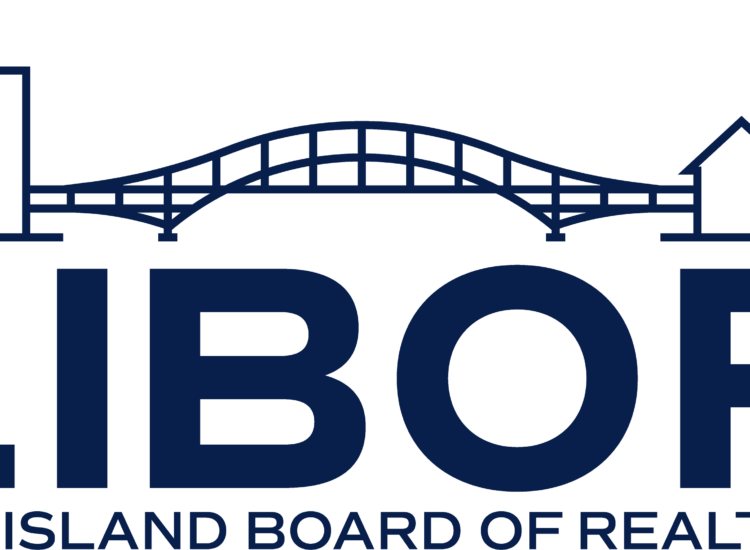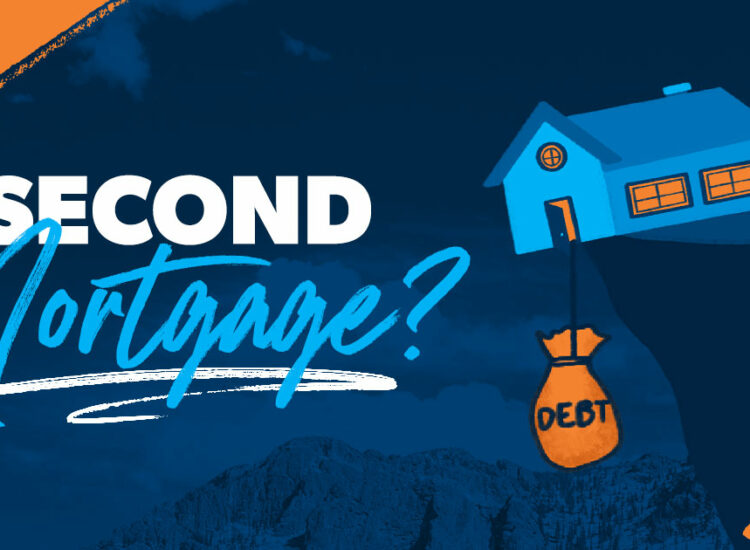The decision to buy homes is one of life’s most significant milestones, representing a landmark step towards security, independence, and a future of possibilities. Whether you’re a first-time homebuyer, a real estate enthusiast making an investment, or a millennial ready to plant roots, the path to homeownership is a varied and complex one. In this comprehensive guide, we explore every facet of the home buying process, equipping you with the knowledge and foresight necessary to make this life-changing endeavor a success.
Toc
Determining Your Budget and Financing Options

Understanding your financial boundaries and the options that can expand or restrict them is a crucial first step in the home buying saga. Your comfort and capabilities are paramount, and it all begins with a detailed look at your finances.
Assessing Your Financial Situation
Begin by comprehensively assessing your financial standing.
Review your current income, savings, debts, and monthly expenses. This analysis will not only give you a clear picture of what you can afford but also help you understand how lenders will view your financial health. A solid understanding of your financial situation is essential for setting a realistic budget for your home purchase. Remember, it’s not just about the mortgage; you’ll also need to account for property taxes, insurance, maintenance, and possibly homeowners association fees.
Calculating Your Income and Expenses
Before putting pen to potential loans, figure out how much money is coming in and going out each month. Consider all sources of income and every expenditure, from the essentials to the discretionary.
Determining How Much You Can Afford to Spend on a Home
A widely accepted rule of thumb is that your monthly housing expenses should not exceed 28% of your gross monthly income. However, take into account other financial commitments and lifestyle preferences when determining how much home you can truly afford.
Exploring Mortgage Options
There are numerous ways to secure a mortgage, each with its own stipulations and benefits.
A comprehensive exploration of mortgage options involves understanding the different types of loans available and identifying which one aligns with your financial situation and housing needs. Traditional fixed-rate mortgages offer the security of a constant interest rate and monthly payment throughout the life of the loan, making them a favorable choice for many buyers. On the other hand, adjustable-rate mortgages (ARMs) may start with a lower interest rate compared to fixed-rate mortgages but can vary over time, which could be beneficial if you plan on moving or refinancing within a few years. Additionally, government-backed loans, such as FHA, VA, and USDA loans, provide opportunities with potentially lower down payments and are specifically designed to help certain homebuyers. Investigating these options, alongside understanding the implications of loan terms, interest rates, and down payment requirements, is vital for securing a mortgage package that best suits your long-term financial goals.
Conventional Mortgages
Offering a fixed or variable interest rate, conventional mortgages are not guaranteed or insured by any government agency, providing flexibility but often requiring higher credit scores and down payments.
FHA Loans
FHA loans, backed by the Federal Housing Administration, offer a lower barrier to entry with more lenient credit requirements and down payments, making them a popular choice for first-time buyers and those with a lower credit score.
VA Loans
For eligible veterans, active-duty service members, and surviving spouses, VA loans provide the opportunity to buy a home with no down payment.
Other Financing Options
From USDA loans for rural properties to jumbo loans for costly homes, various financing pathways may cater to specific needs.
Finding the Perfect Home

Now that you have a clearer understanding of your financial footprint, it’s time to shift your attention to the dwelling itself. Take a closer look at the property, considering its layout, condition, and any potential improvements that could enhance your living experience. By focusing on the details of your home, you can create a space that truly reflects your style and meets your needs effectively.
Identifying Your Needs and Wants
Craft a detailed wish list that distinguishes between what is necessary and what is desirable.
Understanding the difference between your needs and wants is crucial in prioritizing your search and making practical decisions. Needs are the must-haves; these might include the number of bedrooms and bathrooms, accessibility features, or proximity to work and schools. Wants, on the other hand, are features you desire but can live without, such as a swimming pool, a large garden, or a modern kitchen. Balancing these aspects helps focus your search on properties that truly fit your lifestyle and budget, ensuring you invest in a home that meets your long-term requirements while still allowing room for compromises if necessary.
Location Preferences
Location profoundly impacts your lifestyle, commute, and local amenities. Consider proximity to work, schools, entertainment, and public services when selecting an area to explore.
Size and Layout Requirements
How much space do you require now, and how much will you need in the future? The layout of your home should be both functional and adaptable to your potential life changes.
Desired Features and Amenities
From the number of bedrooms to the presence of a yard, list down your ideal home features. This will help you stay focused in your search and will aid your real estate agent in finding viable options.
Working with a Real Estate Agent
A trusted real estate agent can be the lynchpin of a successful home search.
A real estate agent brings a wealth of knowledge and resources that can prove invaluable throughout the home buying process. They have access to comprehensive listings, insights into market trends, and can often spot potential problems with properties before they become serious issues. Their negotiation skills can also be a significant asset, potentially saving you thousands of dollars. When selecting a real estate agent, look for someone with a solid track record in your desired area and who understands your specific needs and budget. A good agent will listen to your preferences, provide honest feedback, and guide you through every step of the home buying process, from finding homes that meet your criteria to navigating the closing paperwork. Establishing a good rapport with your agent is crucial, as this relationship is foundational to finding your perfect home.
Benefits of Hiring a Real Estate Agent
Agents possess local expertise and have access to a treasure trove of listings. Their negotiation skills and legal know-how further streamline the buying process.
How to Choose the Right Agent for You
Seek agents with a solid track record, glowing referrals, and a communicative style that aligns with your own.
Searching for Homes Online and Offline
The search itself can be a blend of meticulous online research and immersive, in-person experiences.
In an era where technology plays a crucial role in almost every aspect of daily life, utilizing online tools and resources in your home search can significantly enhance your ability to find the perfect property. Websites and apps dedicated to home buying offer extensive listings with detailed information, high-quality photos, and sometimes even virtual tours, allowing you to explore a multitude of homes from the comfort of your current residence. These platforms often provide filters to narrow down search results based on your specific criteria, such as price range, location, number of bedrooms, and more, making it easier to identify potential homes that meet your needs.
However, it’s important not to overlook the value of offline methods in your search. Attending open houses and driving around neighborhoods of interest can provide you with a tangible sense of the community and allow you to see firsthand the nuances and characteristics that online listings may not fully capture. Engaging with locals can also offer insider insights into the area and potentially lead you to discover available properties that haven’t been listed online yet.
Combining these online and offline search strategies will give you a comprehensive overview of the housing market in your desired area, increasing your chances of finding a home that not just meets, but exceeds your expectations.
Popular Real Estate Websites and Apps
Platforms like Zillow, Redfin, and Realtor.com offer extensive databases and tools to refine your search.
Attending Open Houses and Home Tours
Physical visits are essential to experiencing the intangible characteristics of a home that might sway your decision.
Evaluating Potential Homes

Once you’ve found a selection of prospective abodes, it’s time to scrutinize them with relative scrutiny.
Evaluating potential homes requires a detailed, methodical approach to ensure you’re making a well-informed decision. It’s not merely about ticking boxes on your wish list but discerning whether a home truly aligns with your life’s practicalities and aspirations. Start by conducting a thorough walkthrough of each property, noting the condition of crucial elements such as the roof, foundation, plumbing, electrical systems, and heating/cooling units. Pay attention to the layout’s functionality – does the flow of rooms suit your lifestyle? Are there any areas of the home that will need immediate repairs or renovations?
Beyond the physical inspection, consider the property’s surroundings. Is the neighborhood conducive to your way of life? Assess factors like noise levels, traffic patterns, and the proximity of essential services and community amenities. It may also be beneficial to visit the property at different times of day and week to get a well-rounded view of what living there might be like.
Finally, consider the future of the home. Is there potential for appreciation in value? Are there any development plans in the area that could affect your enjoyment of the property? Assessing these factors will help narrow your choices to the home that genuinely fits your needs and future plans.
Conducting Home Inspections
Never forego a home inspection; it’s an essential safeguard for your investment.
Importance of Home Inspections
Inspections reveal the condition of a home’s major systems and components, highlighting potential safety hazards and necessary repairs.
Common Issues to Look Out For
Be on the lookout for structural problems, water damage, and infestations that could be hiding beneath a home’s surface.
Assessing the Neighborhood and Community
Your home extends beyond its foundation, encompassing the environment in which it stands.
Researching Crime Rates and Safety
Ensure that you feel secure in your new neighborhood by investigating its safety record and the presence of emergency services.
Evaluating Schools and Local Amenities
Even if you don’t have children, the quality of nearby schools can influence the eventual resale value of your home. Likewise, proximity to parks, shopping, and healthcare facilities can enhance your daily living.
Considering Future Development Plans
Renovations and community growth can dramatically alter the atmosphere and value of a neighborhood, often for the better.
Making an Offer and Negotiating

The art of negotiation begins at the offer and can be the difference between attaining the home you desire and walking away empty-handed.
Determining a Fair Offer Price
Balancing a competitive bid with a realistic value requires market knowledge and strategic thinking.
Analyzing Comparable Properties
Look at similar homes in the area that have recently sold to gauge the market value of the house in question.
Considering Market Conditions
A seller’s market, where demand outweighs supply, will call for a different approach than a buyer’s market, which offers more leverage to the purchaser.
Submitting an Offer and Handling Counteroffers
The back-and-forth of offers and counteroffers necessitates clear communication and a defined strategy.
Key Components of a Strong Offer
Besides price, terms and contingencies can sweeten the deal. A pre-approval letter can also lend credibility to your bid.
Strategies for Negotiating Effectively
Remain flexible, respond promptly, and be prepared to compromise within reason to reach a mutually beneficial agreement.
Closing the Deal and Moving In

The final sprint to homeownership involves paperwork, payments, and planning for your arrival in your new domain.
The closing process, composed of multiple steps and numerous documents, culminates in the transfer of property from seller to buyer.
Understanding Closing Costs and Fees
Be aware of the costs you’ll incur, from origination fees to title insurance.
Reviewing and Signing Final Documents
It’s crucial to read through and fully comprehend every contract and clause before making your final commitment.
Preparing for the Move
The logistics of relocation can be as complicated as the buy itself.
Hiring Movers or Planning a DIY Move
Depending on your needs and resources, decide whether professional movers or a self-organized relocation is the best fit for you.
Transferring Utilities and Updating Addresses
Be proactive in arranging for the transfer of utilities and updating your address with all relevant parties to minimize post-move inconveniences.
Armed with the insights from this extensive guide, you are poised to tackle the exhilarating, sometimes daunting process of buying a home. Remember, your home isn’t just another property; it’s a reflection of who you are and who you aspire to become. Each decision you make in the home buying process paves the way for the experiences, memories, and growth that await within its walls. Happy house hunting!






